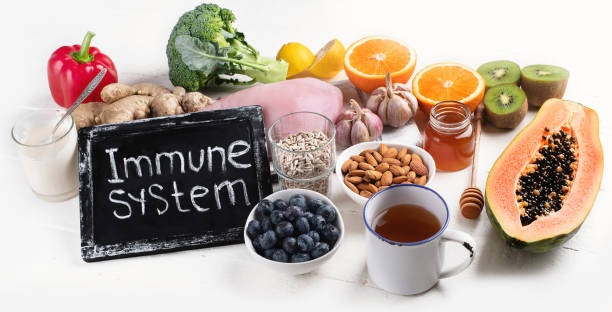Foods high in fat, sugar, and calories we crave when we feel depressed or stressed, however comforting they are, could be the most harmful to our mental well-being.
While people worldwide struggled with increased anxiety, depression, and stress this year, many were tempted to their comfort foods like ice cream, sweets, pizza, hamburgers, and pizza. However, studies from the past few years have shown that the sugary and high-fat meals we seek out when we’re distressed or stressed, as comfortable as they may appear, aren’t likely to help our mental well-being. Instead, whole foods like fruits, vegetables, eggs, fish, seeds, nuts, legumes, and beans, and fermented food items like yogurt might be better choices.
The findings are part of an emerging area of study called nutritional psychotherapy that examines the connection between food and mental health. The idea that certain foods can help improve mental health in the same way that they could improve heart health could be common knowledge. But in the past, nutrition research has primarily focused on how the food that we consume affects our physical well-being and not our mental well-being. For a long time, the impact of food consumption on the quality of life and well-being, according to the researchers of one group recently stated, had been “virtually ignored.”
Over the years, increasing research has offered intriguing clues about how food choices can affect our moods. A balanced diet can help promote the health of your gut, which communicates with the brain via the gut-brain axis. Microbes living in the heart produce neurotransmitters like dopamine and serotonin that regulate our moods and emotions, which is why the gut microbiome is associated with people’s mental health. “A growing body of literature shows that the gut microbiome plays a shaping role in a variety of psychiatric disorders, including major depressive disorder,” the researchers published in Harvard Review of Psychiatry last year.
Numerous studies of large populations have revealed that those who eat many nutritious foods experience less depression and have higher satisfaction and well-being. A survey conducted in the year 2016that was conducted on 12,400 people over approximately seven years found that people who ate more vegetables and fruits during the time of study scored significantly higher on surveys about their overall happiness and satisfaction with their lives.
The vast majority of observational studies can only show correlations, not causality, which leads to the question of the first. Are depression and anxiety causing people to eat unhealthy food or in the reverse direction? Do people who are happy and optimistic more likely to eat healthy foods? A healthy diet can positively affect their mood.
The first significant study to provide insight into the relationship between food and mood was released in 2017. Researchers determined that diet changes could help ease depression. They, therefore, enlisted the 67 patients with clinical depression and divided the group into two groups. One group met with a dietitian, who instructed people to eat the traditional Mediterranean diet. A second group of participants, the control group, had regular meetings with an assistant to research who provided support for social interaction but not dietary guidance.
When this study, the two groups ate lots of sweet foods, processed meats, and salty snack foods with limited fiber, lean proteins or vegetables, and fruits. The diet group, however, changed their diet drastically. They substituted sweets fast food, sweets, and pastries with whole food items such as beans, nuts, legumes, and fruits. They changed over from whole-grain bread and the sourdough bread. They dropped sugary cereals and consumed oatmeal and muesli. As a substitute for pizzas, they indulged in vegetable stir-fries. They also substituted highly processed meats such as bacon, sausages, and ham with seafood and small portions of red hearts that were lean and healthy.
The most important thing is that each group was advised to take any antidepressants and other medications that were recommended. The research aimed not to determine whether a healthier diet can replace drugs but if it would bring additional benefits such as exercise, restorative sleep, and other lifestyle habits.
In 12 weeks, mean depression scores were improved in both groups. This might be expected from anyone participating in a clinical trial that offered extra support, regardless of the group you were a part of. However, depression scores improved even more in the group who followed the healthy diet. Approximately three-quarters of the participants did not have to be classified as depressed, compared to 8 percent of those in the group that did not.
The results were remarkable due to a variety of reasons. The diet improved physical health, even though participants didn’t lose weight. The participants also saved money by choosing healthier foods, showing that a healthy lifestyle isn’t expensive. Before the study, participants spent an average of $138 per week on food items. People who adopt a healthy diet cut the cost of food to only $112 a week.
The foods recommended were affordable and readily available in most supermarkets. According to Felice Jacka, the study’s principal author, they included items like lentils and beans that can be canned, as well as tuna, salmon, sardines, and conventional and frozen vegetables.
“Mental health is complex,” said the doctor. Jacka is the director of the Food & Mood Centre at Deakin University in Australia and the head of the International Society for Nutritional Psychiatry Research. “Eating salad isn’t likely to help with depression. However, some things to order to boost the mood of your mind and your well-being. It’s simple as boosting the amount of vegetables you consume and other healthy food choices.”
Numerous randomized studies have published similar results. In an investigation of 150 individuals suffering from depression, which was published in the year 2000, the researchers found that those that were given a Mediterranean diet that included omega-3 fish oils for three months experienced more reductions in the symptoms of stress, depression, and anxiety after three months than a control group.
However, not every study has produced positive results. A massive, year-long study that was published in JAMA in the year 2019 For instance, it was found that the Mediterranean diet helped reduce anxiety, but it did not stop depression in a subset of those at risk. Supplements like selenium, vitamin D, and omega-3 fatty acids did not influence anxiety or depression.
The majority of psychiatric professional organizations haven’t adopted dietary guidelines because experts suggest that they need to conduct more research before they can recommend an appropriate diet for mental health. However, experts from public health all over the world are now encouraging people to take on healthy lifestyle habits such as exercising, sound sleep, and a heart-healthy lifestyle and abstaining from smoking cigarettes that can help lower inflammation and provide benefits to the brain. A study by the Royal Australian and New Zealand College of Psychiatrists released guidelines for clinical practice that encourage clinicians to discuss the effects of smoking, diet, and exercise before introducing patients to medications or psychotherapy.
Individual practitioners are, too, using nutrition in their treatment of patients. Dr. Drew Ramsey is a psychiatrist and assistant professor of clinical psychology at Columbia University College of Physicians and Surgeons. Columbia University College of Physicians and Surgeons in New York begins sessions with new patients by examining their psychiatric history and diet. He inquires about what they eat and learns about their favorite food items, and determines what foods he believes are crucial for the gut-brain link aren’t present in their diets. These include seafood, plants, and fermented food.
“Dr. Ramsey published a book in March entitled ” Eat to Beat Depression and Anxiety” and established the Brain Food Clinic in New York to help those struggling with mood disorders improve their diets. Dr. Ramsey often recites a jingle to help people remember the fundamentals of his diet tips: “Seafood, greens, nuts and beans — and a little dark chocolate.”
It is said that Dr. Ramsey said these foods aid in the development of compounds such as brain-derived neurotrophic factors, also known as BDNF, which promote the development of new neurons and also help protect existing ones. They also contain a lot of fiber, unsaturated fats, omega-3 fatty acids, antioxidants, and other nutrients proven to improve metabolic and gut health and reduce inflammation, each of which could influence the brain.
Doctor. Ramsey said he does not want people to believe that the only factor in the health of our brains is food. “Lots of people get their food exactly right, live very active lives, and still have significant troubles with their mental health,” he explained.
He also teaches people that food can empower them. “We can’t control our genes, who our parents were, or if random acts of trauma or violence happen to us,” said the doctor. Stated. “But we can control how we eat, and that gives people actionable things that they can do to take care of their daily daily basis.”

